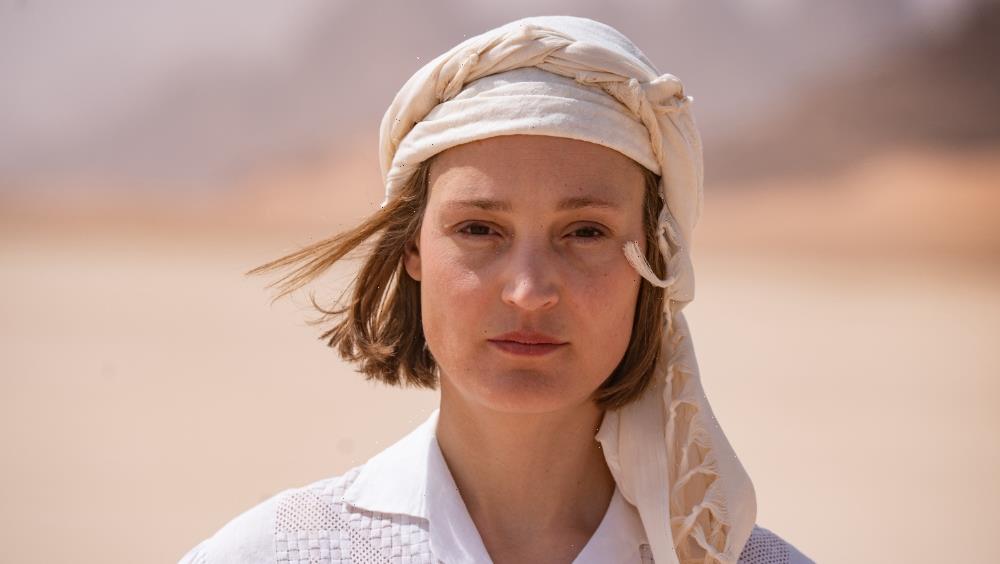
Vicky Krieps on Berlin Competition Film ‘Ingeborg Bachmann’: ‘I Went So Far, I Felt Like I Almost Lost Myself’ (EXCLUSIVE)
02/20/2023Acclaimed “Phantom Thread” actor Vicky Krieps’ latest film, “Ingeborg Bachmann – Journey into the Desert,” directed by German cinema legend Margarethe von Trotta, has its world premiere in competition at the Berlin Film Festival.
Krieps plays the titular Austrian Bachmann, one of the most renowned German-language poetry and prose writers of the 20th century. The film follows her life and career and her relationships with Swiss playwright (Ronald Zehrfeld), Austrian author Adolf Opel (Tobias Samuel Resch) and German composer Hans Werner Henze (Basil Eidenbenz) during a six-year period in her life from 1958.
The actor was familiar with the writer from her formative years. “I knew about Bachmann because in Germany she’s very famous. I grew up with her in school,” Krieps told Variety. “I was very into poetry when I was younger, so I knew her poetry.” Krieps familiarized herself further with Bachmann’s work once she was cast.
The film also delves into the writer’s emotional landscape.
“She’s very tormented woman, so for me, in order to get close to her, I thought I should maybe rather chime in with the energy of someone who’s very lost and as if the ground is moving or shaking,” Krieps said. “I did not really try and prepare anything, it was more a step further into the vulnerability. It’s something I always play with, I always go into a place where I become very raw and open. But in this one in particular, I went so far, I felt like I almost lost myself. I really felt dizzy when I was making the film. Many times, many days I would say to my director, ‘I have to sit down, I’m dizzy.’”
“Ingeborg Bachmann” is the first film since 2018 documentary “Searching for Ingmar Bergman” for von Trotta, one of the pioneers of the New German Cinema movement.
Krieps describes the process of working with von Trotta as “amazing.”
“What makes the movie somewhat special is that she and I talk to each other from the other side of a generation about a female topic that is very close to every woman and through a woman that was to both of us a very important woman,” Krieps said.
The film premiering in Berlin is a homecoming for Krieps. “She [Bachmann] was famous, but I wouldn’t say she was really recognized for her work. She was one of the great thinkers of our time, she was recognized as a poet, but to me, she was much more,” said Krieps. “To have the movie here in Germany, about this woman who I respect so much, is wonderful and beautiful. And for me as an actor, it’s like coming home. I live in the city. It’s very nice to be here.”
Krieps recently starred in “Corsage” where she played Austrian Empress Elisabeth, aka Sisi, for which she won the best performance award at Cannes. The film, which was Austria’s entry to the Oscars, was in the news when one of the film’s actors, Florian Teichtmeister, was charged with possession of child pornography.
“It’s the problem of a man who needs probably treatment and help and also, it needs to be judged by the law. To me, I don’t even see in what way this could be controversial to the movie,” Krieps said. “It was a shock to know that someone I was so close to was apparently someone I didn’t know. This was more shocking, and shaking me in a way thinking about humans and society and how we think we know each other, but we don’t. In that way I thought about it a lot but I never understood what it has to do with the movie. He’s not playing Sisi and the movie is not about manliness. In my eyes it is not really connected.”
Next up for Krieps is Samuel Van Grinsven’s “Went Up the Hill,” which shoots in New Zealand in May.
“It will be interesting on a philosophical level. It’s like a horror thriller with ghosts and things like that. But to me, it’s really about human relationships and how we have to cut the link to our parents and move on in life and leave all our ghosts behind so we can become a new person and a real person,” Krieps said.
Read More About:
Source: Read Full Article

